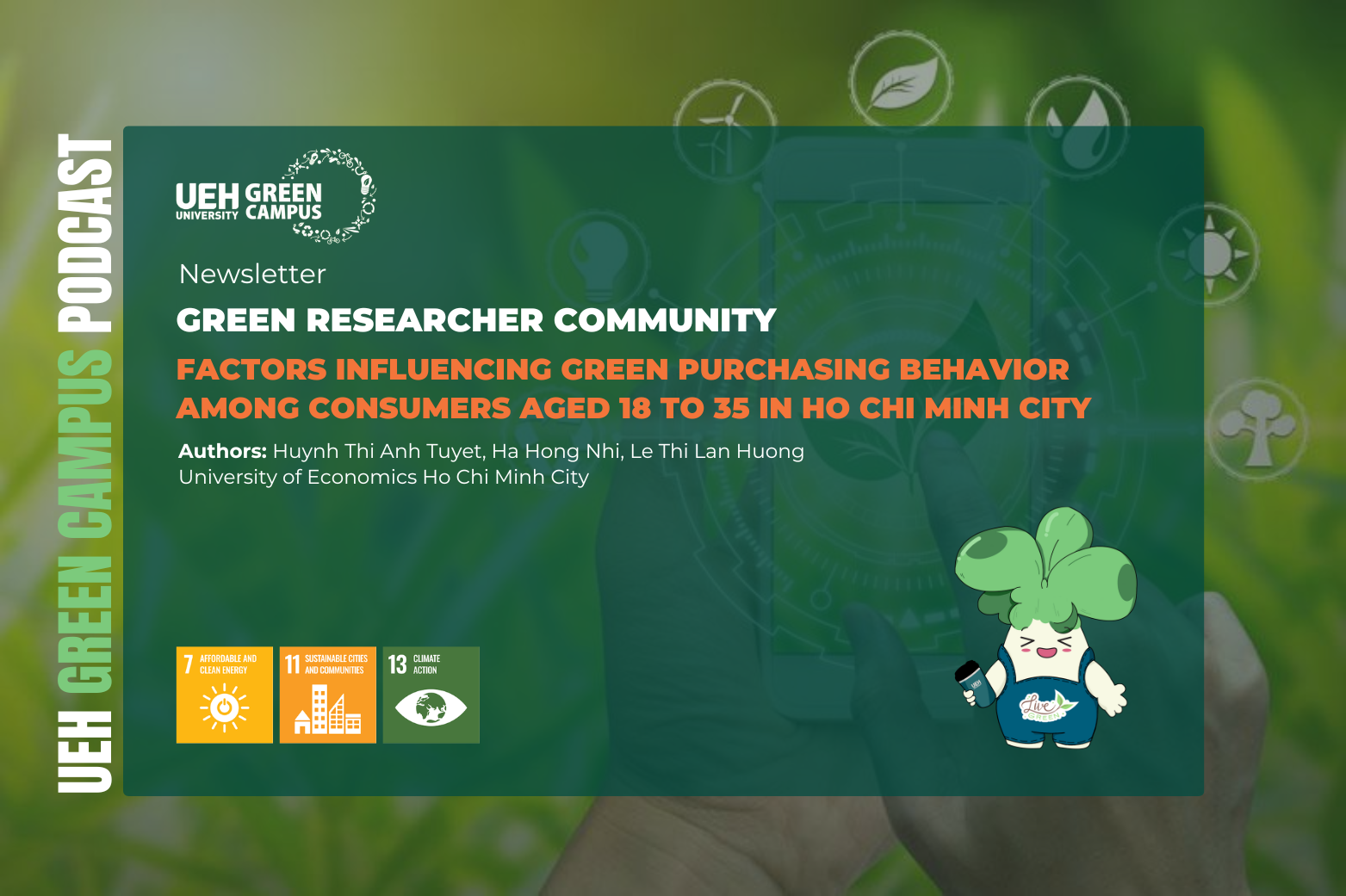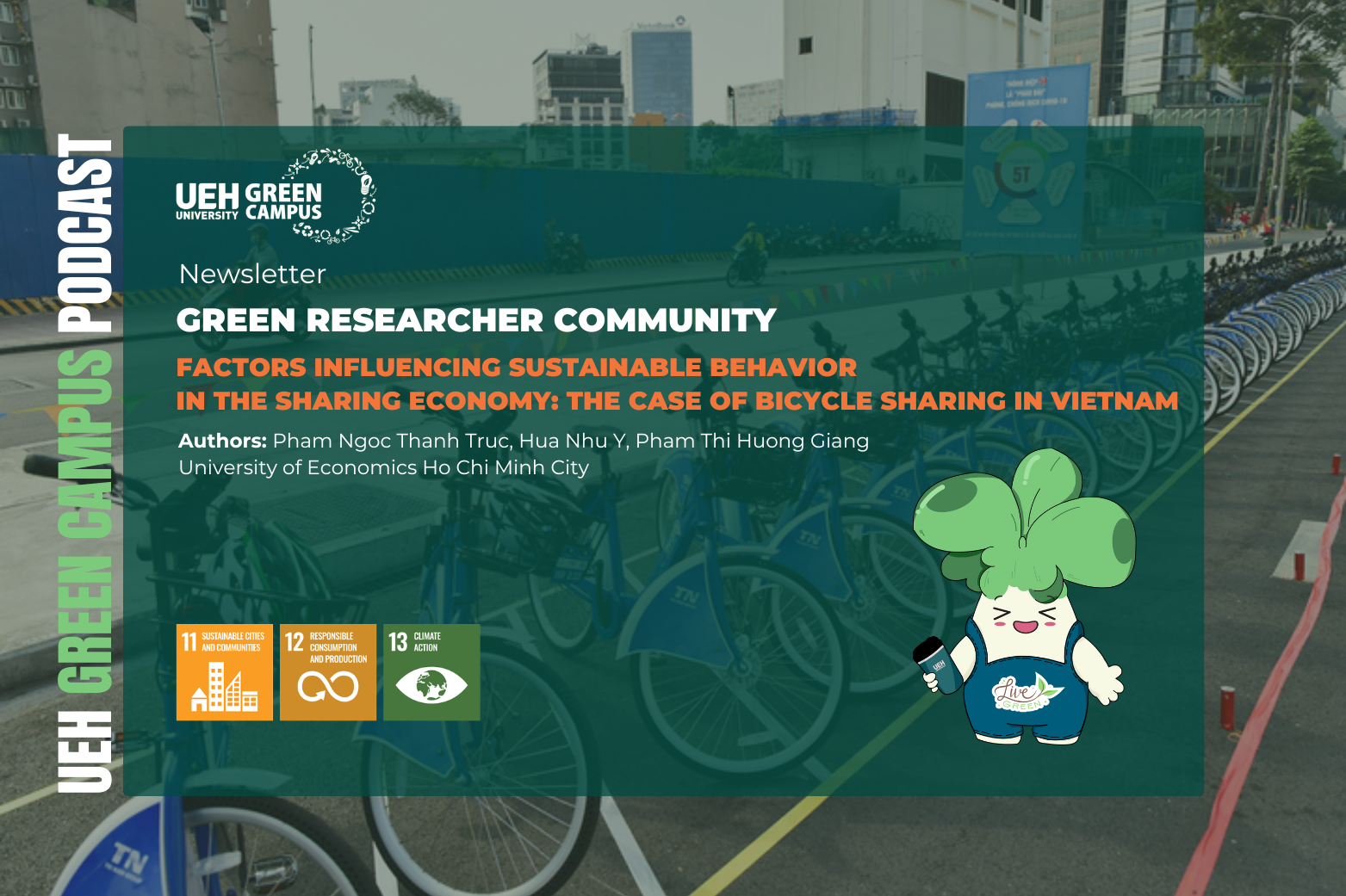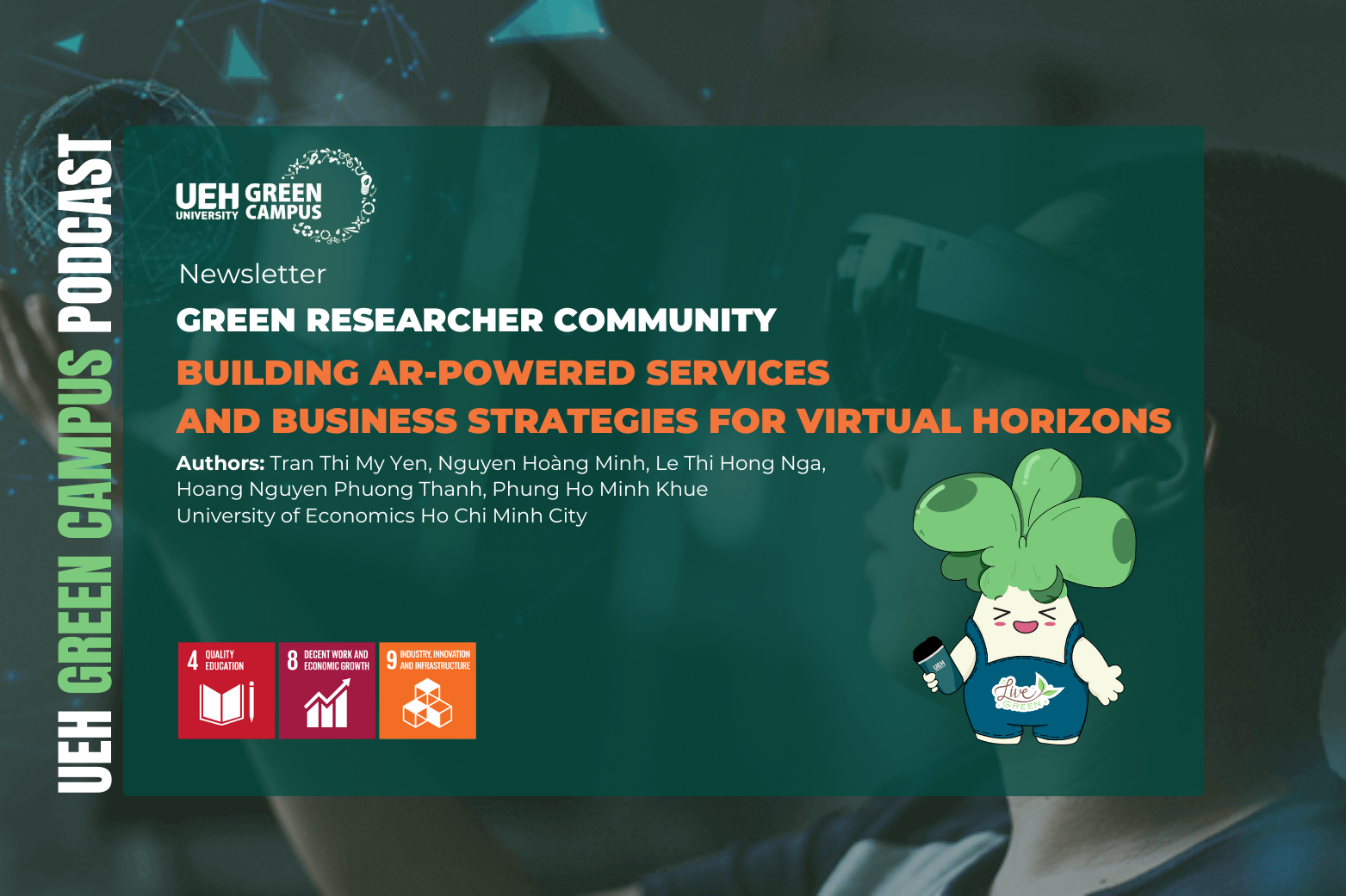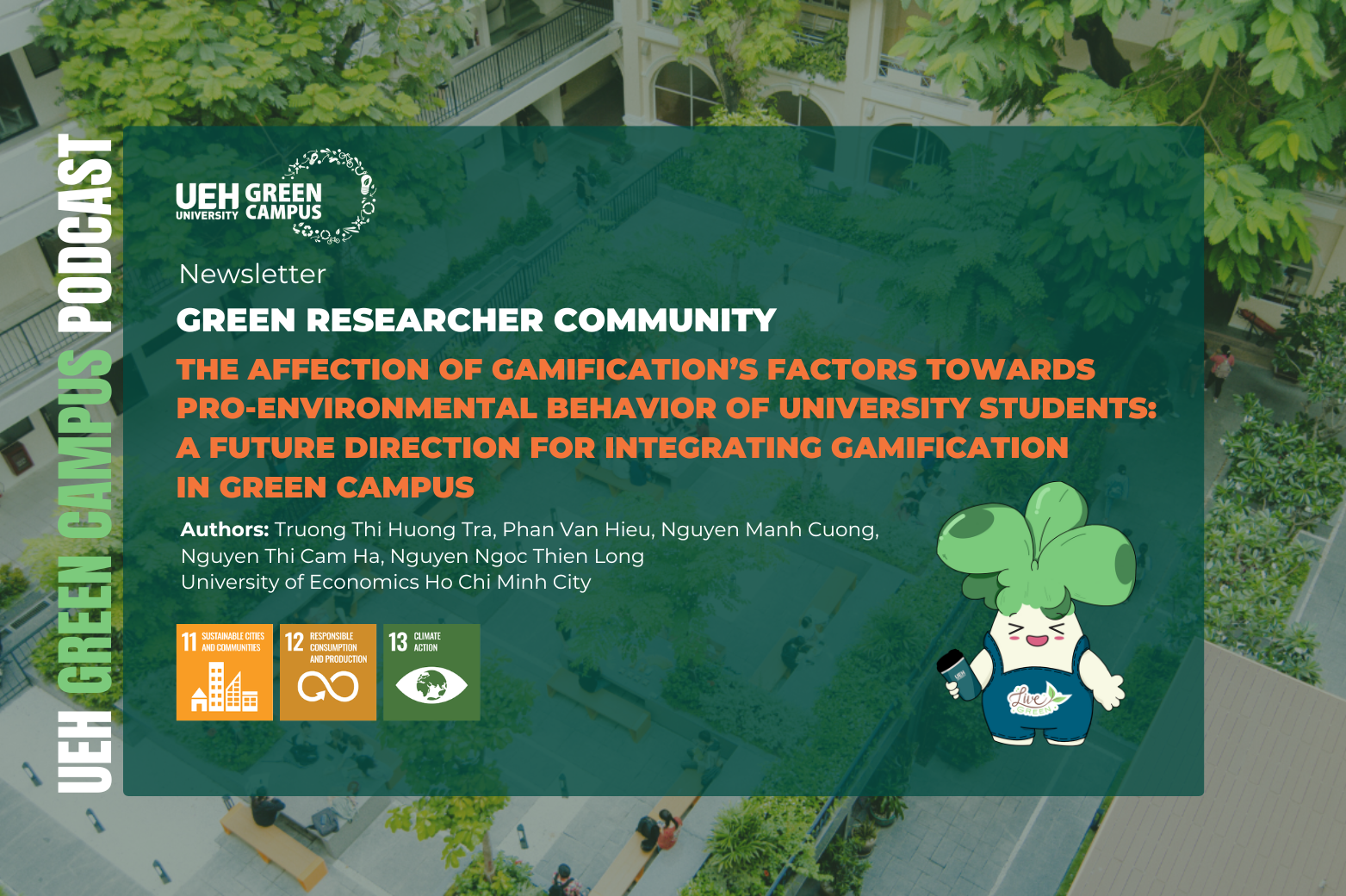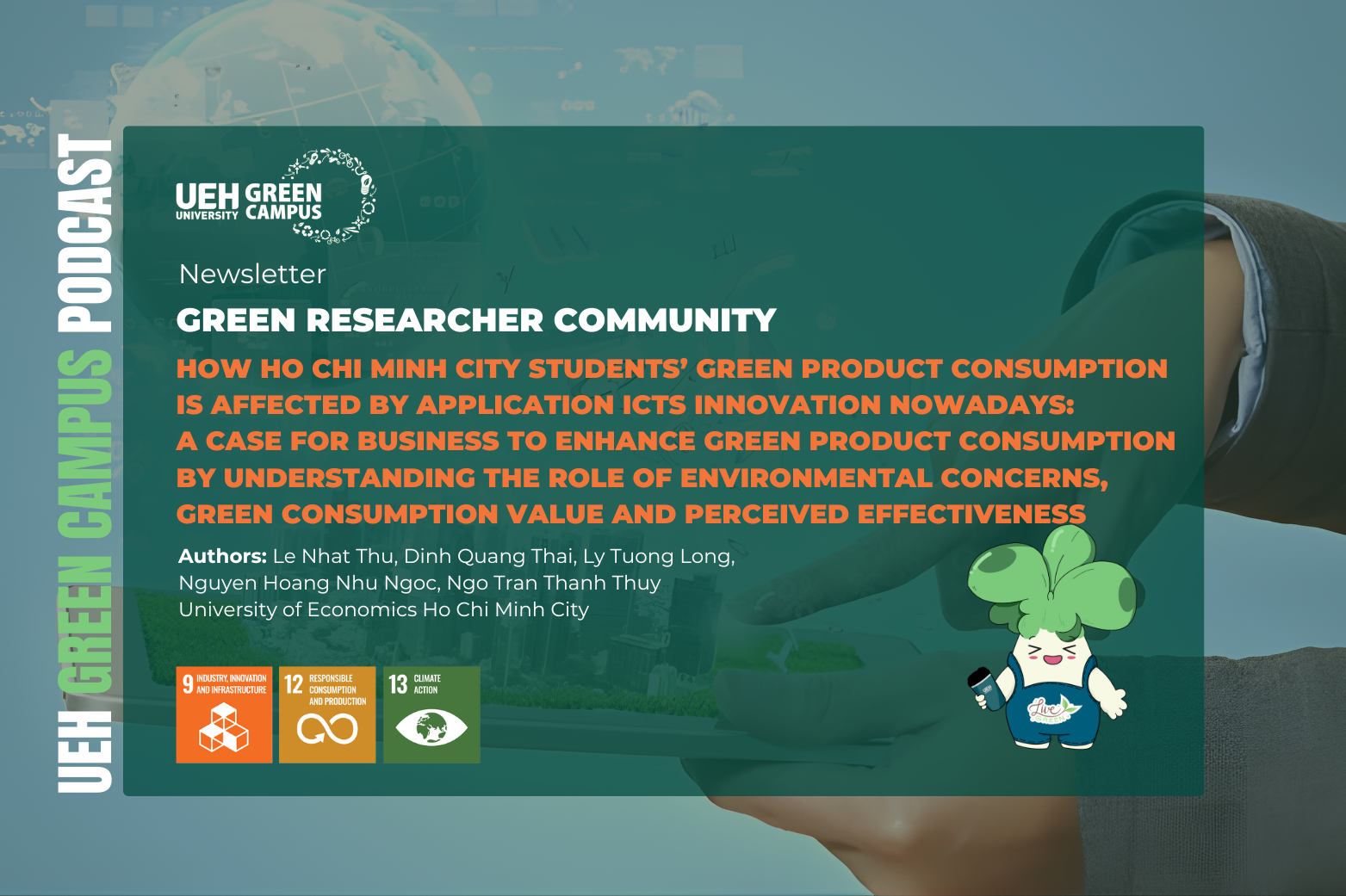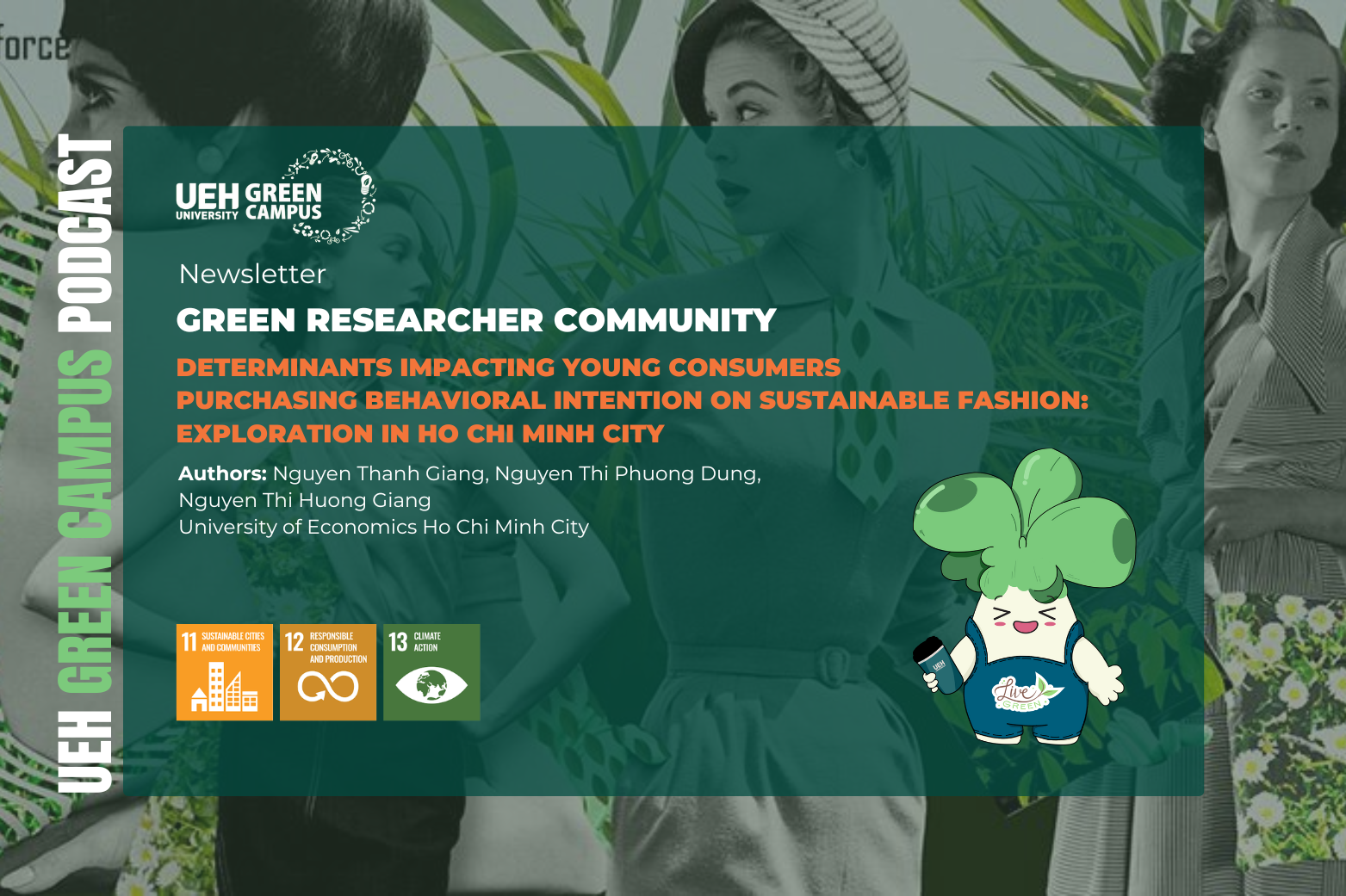Podcast
[Contribution Research] Actors influencing green purchasing behavior among consumers aged 18 to 35 in Ho Chi Minh City
01/02/2026
Keywords: green marketing, general risk aversion, consumer innovation, green perception, anxiety mood. As climate change and environmental pollution become increasingly prevalent in urban life, green consumption is no longer a trendy option, but rath
Podcast
[Contribution Research] Factors influencing sustainable behavior in the sharing economy: The case of bicycle sharing in Vietnam
30/01/2026
Keywords: sustainable behavior in public bicycle services, ethical norms, impacts on sustainable behavior, sharing economy, perception of individual behavior. As shared economy services become increasingly prevalent in Vietnamese urban life, public b
Podcast
[Contribution Research] Green researcher community building AR-Powered services and business strategies for virtual horizons
26/01/2026
Keywords: augmented reality, AR, Virtual Horizons, e-commerce, AR solutions, Industry 4.0, user survey, business strategy, AR applications. As digital technology reshapes how people perceive and interact with the world, augmented reality (AR) is no l
Podcast
[Contribution Research] The affection of gamification’s factors towards pro-environmental behavior of university students: A future direction for integrating gamification in green campus
23/01/2026
Keywords: Gamification, green campus, behavioral motivation, student engagement, school environment As the journey to build a "Green University" doesn't stop at awareness but needs to be nurtured by daily action, the question arises: how can students
Podcast
[Contribution Research] How Ho Chi Minh City students’ green product consumption is affected by application iCTs innovation nowadays: A case for business to enhance green product consumption by understanding the role of environmental concerns, green consumption value and perceived effectiveness
18/01/2026
Keywords: Green consumer behavior; Information and communication technology; Green consumer products; Level of environmental concern; Green consumer value; Perceived effectiveness In the context of green consumption gradually becoming the choice of t
Podcast
[Research Contribution] Determinants impacting young consumers purchasing behavioral intention on sustainable fashion: exploration in Ho Chi Minh City
09/01/2026
Keywords: sustainable fashion; purchase intention; consumer attitudes; social norms; environmental concerns. Every year, the fashion industry generates millions of tons of waste and consumes vast amounts of water and energy, yet new clothes are const


